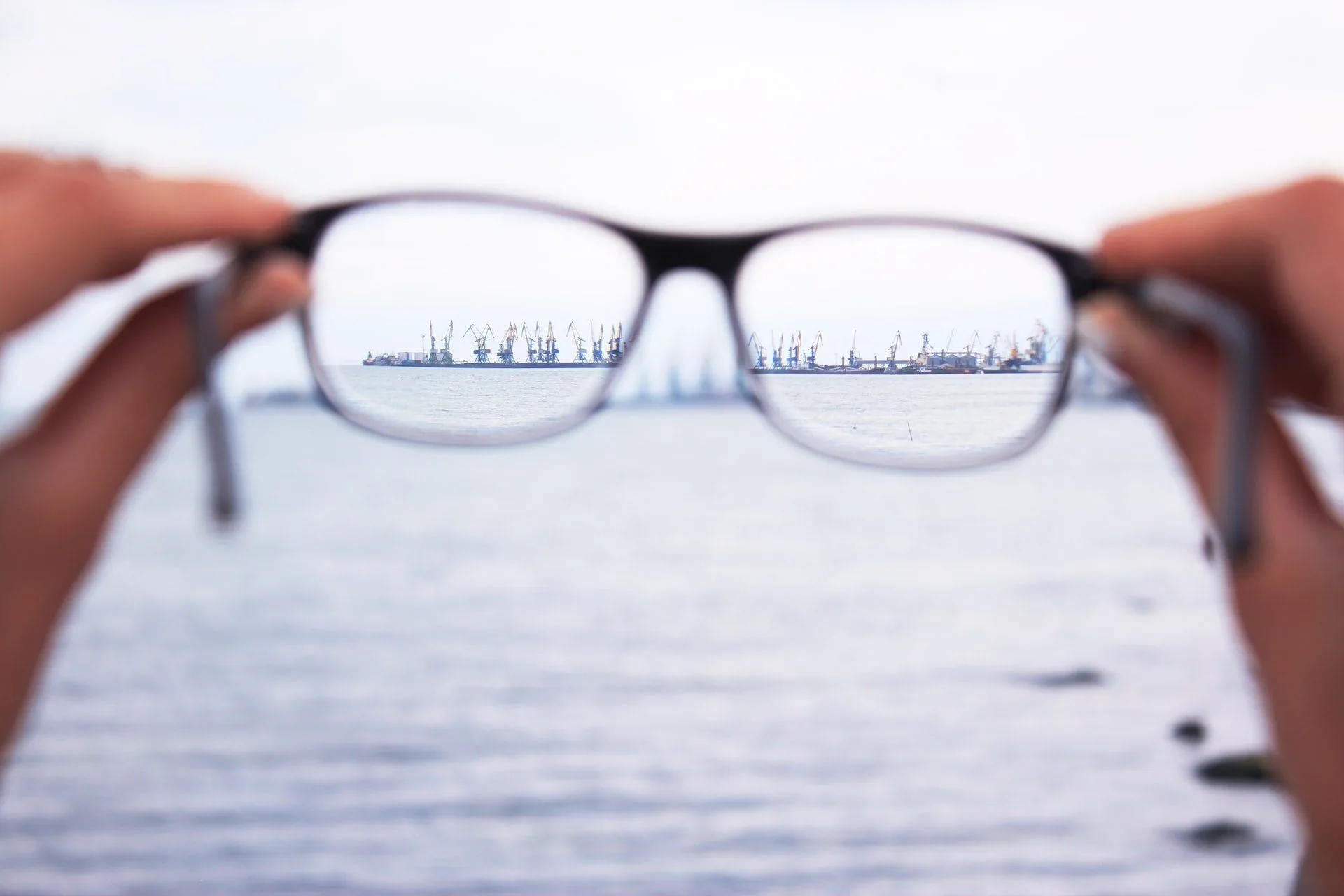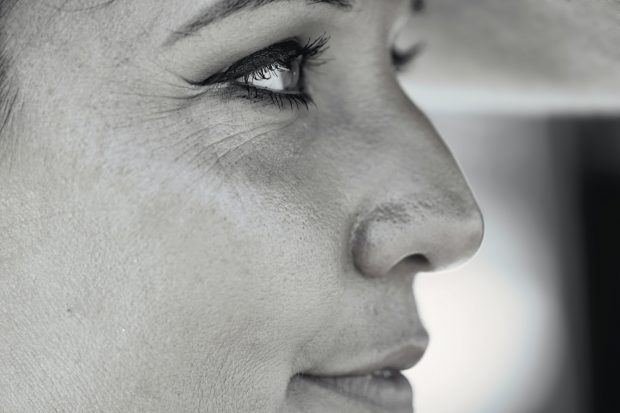Let there be sight. If there’s one thing that we’re worried about losing as we age, it’s definitely our vision. Eye health is so important, especially when you remember to spend a large majority of your days staring into a screen, which is certainly accelerating how fast our vision ages. As a result, it’s more vital than ever for us to take the necessary steps to care for our sight, especially if we still want to be able to see the future that we envision for ourselves.
Eye Health Through The Ages
You may have noticed that your vision isn’t as clear as it was a few years ago, and that’s because different stages of your life tend to affect your vision. In fact, read on for more on how your vision changes through the years.
In your 20s and 30s
The biggest cause for concern during this period of your life is eye strain and potential eye injuries. Long-term exposure to blue light and constant staring at the screen can cause irritation and strained eyes, causing blurred vision, dry eyes, and even headaches. As you prioritize the longevity of your eye health and vision, incorporating anti blue light glasses into your daily routine can play a significant role.
In your 40s
Now, this is when the changes in your sight start to become more obvious. A few of the changes that you are likely to notice in your vision during your 40s include:
-
Dry Eyes
Did you know that the amount of tears that your tear glands produce reduces as you age? As a result, your eyes start to dry out, and this is worsened by you staring at a screen all day.
-
Reduced reading vision (Presbyopia)
Your eyes have lenses and depending on where an object is, the lenses change in size. When reading, or looking at something close, your lens gets bigger, and it is able to do this when you’re young.
Unfortunately, as you age, the lens’ elasticity reduces and your eye muscles become weaker, making it harder for you to see things up close.
-
Difficulty seeing at night
It’s not just your lens’ elasticity that changes through the years. The photoreceptors in your eyes, responsible for filtering color, also begin to age and this then makes it harder for you to see in the dark – which can be particularly dangerous if you’re prone to driving at night.
-
Glaucoma
Glaucoma is an eye condition that damages the optic nerve, which connects the eye to the brain, and it affects over 80 million people worldwide. If left untreated, this condition can cause loss of vision.
While it’s not an aging-related disease, the risk of glaucoma does increase in your 40s. In addition to genetics, other risk factors include high internal eye pressure and chronic health conditions like diabetes, heart disease, and hypertension.
-
Cataracts
The condition occurs when the eye lens begins to get cloudy, causing blurry vision and poor night vision. As the lens of the eyes is made up of protein and water, the aging process causes these proteins to bind together, leading to cloudiness.
Like glaucoma, the risk for cataracts increases after 40, and risk factors include smoking, obesity, diabetes, and excessive exposure to sunlight.
-
Macular Degeneration
The macula is the part of the eye responsible for your central vision and if harmed, it can cause blurred or reduced vision. Unfortunately, the aging process causes changes to the macula, which then affects our vision. In fact, age-related macular degeneration is the leading cause of visual disability in the industrialized world and the third leading cause globally.
Aside from age and genetics, macular degeneration has also been linked to smoking, obesity, and increased exposure to sunlight.
In your 50s
If you are worried about your vision in your 40s, the risk of developing any of the aforementioned eye conditions only increases once you reach your 50s.
In your 60s and beyond
If you thought having an eye disease in your 40s and 50s was bad, wait until you hit your 60s. It is during this period that, if left untreated, eye conditions can permanently damage your vision. One particularly frightening eye condition that can affect you during this period is rhegmatogenous retinal detachment. This occurs when your retina pulls away from the tissue and can potentially cause vision loss if not treated immediately.
How to protect vision longevity
If you’re hoping to maintain 20/20 vision over the next 20 years and beyond, then there are a few effective things you can do.
1. Get your eyes checked
The best way to maintain the health of your vision is by going for regular eye exams. We’re not interested in how great you believe your vision is, just go for the tests. Based on your age, there are recommendations for how often you should get your vision tested;
- 20 to 39: Every 5 years
- 40 to 54: Every 2 to 4 years
- 55 to 64: Every 1 to 3 years
- 65 and up: Every 1 to 2 years
2. Eat for vision
You are what you eat, and so is your sight. According to a study published in the British Journal of Ophthalmology, the rate of age-related macular degeneration was three times higher among participants who consumed a diet high in processed foods, red meat, high-fat dairy, and sugar-sweetened beverages.

Subbotina Anna/Shutterstock
To protect the health of your vision, it is best to consume foods that contain nutrients that protect the eye. Lutein and zeaxanthin are the best nutrients for your eyes, as they’ve been linked to improved vision and a reduced risk of developing an eye disease.
These nutrients can be found in leafy green vegetables, egg yolks as well as grapes, corn, and bell peppers. Additional nutrients that can protect eye health include vitamins A, C, and E, omega fatty acids, and zinc.
If you’re looking for a diet that’s great for your sight, might we recommend the Mediterranean diet? According to a study published in Ophthalmology, of the 5000 analyzed participants aged 55 and older, those who adhered to the Mediterranean diet were 41% less likely to develop age-related macular degeneration.
3. Exercise
Exercise is good for the mind, body, soul, and eyes. Now, while you may be wondering how sweat pouring down your face and into your eyes is supposed to help your vision, there is research that supports the benefits of fitness for eye health.
One study found that regular exercise can help reduce the risk of progression of dementia, while a separate animal study suggested that exercise can protect against eye damage.
4. Get blue light protection
It can be hard to escape blue light exposure, especially because we spend a lot of time staring into our screens and because blue light also comes from the sun. However, this doesn’t mean that you can’t protect yourself from it.
Investing in a proper pair of UV protection sunglasses, as well as blue light glasses for when you’re working on your laptop, can help to protect your vision from blue light damage.
5. Quit smoking
Frankly, you shouldn’t even be doing it, but if you are a smoker, then it’s important for you to quit – especially if you want to maintain your sight.
According to the Centers for Disease Control and Prevention (CDC), smokers are twice as likely to develop age-related macular denigration and two to three times more likely to develop cataracts (1).
If you’re having trouble quitting, it may be best to join a support group, invest in nicotine patches, and recognize and avoid your triggers.
Bottom line
The gift of sight isn’t one to take for granted. Now, while there continue to be advancements in vision correction, that doesn’t mean that you shouldn’t take the proactive approach to protect your eyes as the years come.
References
1. https://www.cdc.gov/tobacco/campaign/tips/diseases/vision-loss-blindness.html
2. Dighe, S., Zhao, J., Steffen, L., Mares, J. A., Meuer, S. M., Klein, B., Klein, R., & Millen, A. E. (2020). Diet patterns and the incidence of age-related macular degeneration in the Atherosclerosis Risk in Communities (ARIC) study. The British journal of ophthalmology, 104(8), 1070–1076. https://doi.org/10.1136/bjophthalmol-2019-314813
3. Keenan, T. D., Agrón, E., Mares, J., Clemons, T. E., van Asten, F., Swaroop, A., Chew, E. Y., & Age-Related Eye Disease Studies (AREDS) 1 and 2 Research Groups (2020). Adherence to the Mediterranean Diet and Progression to Late Age-Related Macular Degeneration in the Age-Related Eye Disease Studies 1 and 2. Ophthalmology, 127(11), 1515–1528. https://doi.org/10.1016/j.ophtha.2020.04.030
4. Makin, R., Argyle, D., Hirahara, S., Nagasaka, Y., et al. (2020), Voluntary Exercise Suppresses Choroidal Neovascularization in Mice. Invest. Ophthalmol. Vis. Sci. 61(5):52. doi: https://doi.org/10.1167/iovs.61.5.52.
5. Pan, X., Xu, K., Wang, X. et al. Evening exercise is associated with lower odds of visual field progression in Chinese patients with primary open angle glaucoma. Eye and Vis 7, 12 (2020). https://doi.org/10.1186/s40662-020-0175-9
6. Pennington, K. L., & DeAngelis, M. M. (2016). Epidemiology of age-related macular degeneration (AMD): associations with cardiovascular disease phenotypes and lipid factors. Eye and vision (London, England), 3, 34. https://doi.org/10.1186/s40662-016-0063-5




![women [longevity live]](https://longevitylive.com/wp-content/uploads/2020/01/photo-of-women-walking-down-the-street-1116984-100x100.jpg)










